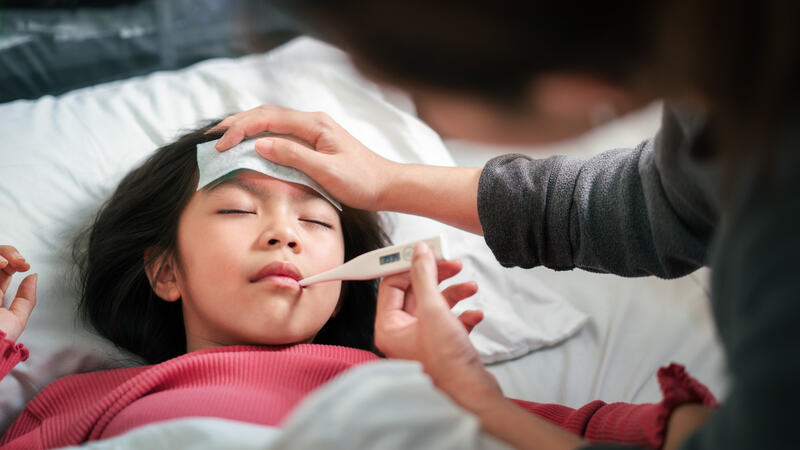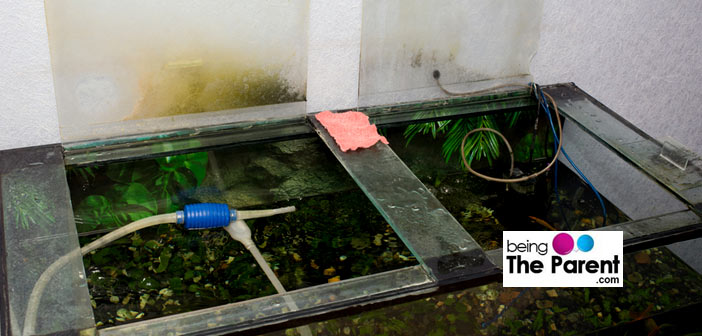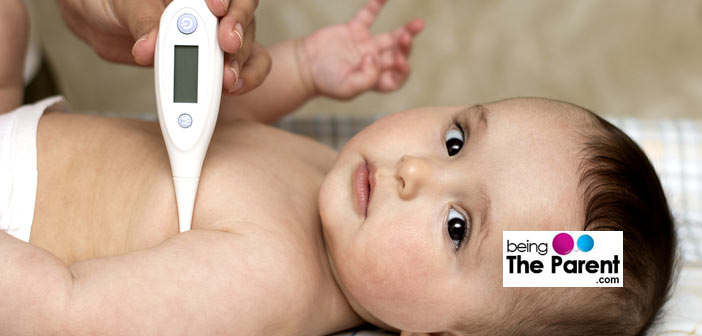
With no vaccine available for Dengue, it can be scary if your child gets the dengue fever. Dengue is most common in tropical areas and caused when bitten by an infected ‘Aedes’ mosquito. This disease is common but may cause severe exhaustion. Warm and humid climate cater a perfect breeding environment to the ‘Aedes’ mosquito. Studies have shown that the most common site of mosquito breeding is stagnant water, therefore the instance of dengue soars during monsoon. With monsoon approaching soon, below is a list of tips to prevent dengue during monsoon:
Read more about Dengue Fever In Children here.
Preventing and Treating Dengue In Monsoon
Since it’s the environment that is conducive for the breeding of Aedes mosquitoes, the key is to snatch that away. If you are living or travelling in tropical areas, especially during monsoons, your best bet is not to let the mosquitoes bite you. The below tips will help in prevention of Dengue Fever in kids:
- Keep your house clean, dry and hygienic
- Throw away wet garbage such as vegetable stalks, fruit peels etc, away from your home preferably at the municipal bins. Clean the flower pots and throw the dead plants away
- Get rid of stagnant water in the premises:
- Let your vase go dry for a month or two – You may always use artificial flowers for the meantime
- If you have a swimming pool – remove the entire water, let it become dry and cover it
- Do the same for any ornamental waterfall pieces or fountains
- It’s time to drain the cooler tank of any water, let it dry and store it appropriately – such that it does not stores water
- Any other receptacles collecting water should be turned upside down

- Install mosquito meshes to prevent the entry of mosquitoes without obstructing the inflow of fresh air
- Buy good quality mosquito nets and use them
- Young kids can wear attractive mosquito bands and badges throughout the day to prevent mosquito buzzing around them
- Dress them in light, cotton clothes – preferably full sleeves, pants and socks – cover them up as much as possible
- Permethrin is a mosquito repellent that can be sprayed onto the clothes, however its best to consult the pediatrician before
- You may use DEET for spraying in the premises – but should be kept away from the babies
Natural Remedies For Getting Rid of Mosquitoes
To effectively prevent dengue, it is imperative that mosquitoes are not breeding around. In tropical areas, mosquitoes can be a menace and it may not be possible to steer clear of them at all times. However, you can try the below strategies to prevent the breeding of mosquitoes.
- Use eucalyptus / citronella oil
- Hogweed is used to bring down temperatures because it produces a lot of perspiration</li?
- Burning earthen lamps containing neem oil also benefits. One can also apply neem leaves or neem oil after wrapping in a damp cloth 2-3 times daily. the dosage should not be more than 15 to 60 gms
- Burning lavender aromatic candles
- Burning camphor – keep the room closed for 15-20 minutes afterwards and say bye bye to the mosquitoes
- Add tea-tree oil to the vaporizer and let it ward off those pesky creatures
- Shift your tulsi plant near the window – yes some plants prevent mosquitoes from buzzing around!
Preventing Dengue In Babies

Though babies will not go out in the rains and play in muddy waters, yet if your house does breed or lets in mosquitoes, they are at a risk of getting dengue as well.
- Make sure to cover the buggy, stroller, crib covered with mosquito net as much as possible
- Dress the baby in light, soft, breathable clothes – preferably which cover most of him
- The mosquito repellents cannot be used on the baby less than 2 months
- You can strap the mosquito bands and badges near the baby – like on the stroller or his crib
Home Remedies For Dengue In Kids
On observing symptoms such as fever, body rash or muscle/joint pain, you should already be confirming an appointment with the pediatrician. Once dengue is confirmed, the doctor may prescribe paracetamol to take care of the fever. However with babies, be extra cautious – no overdose – no missed doses. If you find that the symptoms are not subsiding, then take your child to the pediatrician.
Since there is no set of medicine specifically designed to counter dengue, managing the symptoms along with following measures serve as the ideal treatment:
- Consume barley grass: Barley grass can be either made in a tea or one can consume it as it is. It helps in stimulating production of new blood cells and thus increases the platelet count
- Neem leaves: The highly medicinal properties of neem leaves come to use even in dengue. You can brew the leaves and make your child drink the neem water. Neem helps in increasing the white blood cell count and the platelet count
- Papaya leaves: The juice of crushed papaya leaves can also help in treating dengue, though it is not clearly established. The juice from papaya leaves helps in eliminating the toxins from the body, and boosts the immune system. Papaya juice helps in platelet deficiency, hence its consumption is also said to have positive effects during dengue
- Orange juice: The vitamin c in orange juice strengthens the immune system and frequent urination causes the toxis to go out of the body. It also helps in repairing the body and eases the symptoms of dengue. Other fruits rich in vitamin C, like amla, can be given to the kids. Juices of pomegranate and black grapes also help in increasing the blood count
- Fenugreek leaves: Dengue causes a lot of exhaustion and pains, and fenugreek leaves can help ease the pain and allow the patient to have a good sleep by acting as a sedative. Fenugreek can be taken as a beverage as it reduces fever.
- Basil (Tulsi) leaves: Chewing basil leaves has been in practice since ages and is an effective Ayurvedic remedy to treat dengue fever. The natural insecticidal properties of basil leaves will also make you less attractive for mosquitoes. Boiled Tulsi leaves (Holy Basil)can be consumed like a warm beverage.
- Refrain from pain relieving medications:Do not administer pain-relieving medicines such as aspirin and ibuprofen. Place wet cloth on the forehead to naturally bring down the temperature
- Ample rest: Allow your child to take ample of rest – the body feels drained during dengue. Provide warm and nutritious food, must be light i.e. easily digestible
- Prevent dehydration: For younger kids, you can give ORS to prevent dehydration. Make sure your child drinks a lot of water which will help in hydrating the body and ease headaches and muscle cramps. Water will also help flush out toxins from the body. Provide your child with plenty of fluids – be it in the form of coconut water, fruit juices or soups
- Coriander leaves: Coriander leaves can also help bring down the fever
Prevention is better than cure! The above prevention tips do not apply just to keep mosquitoes away but are essential for optimum health of each family member. During monsoon, it’s water that has to be prevented from lodging at places and becoming potential harboring ground for mosquitoes. Also it is essential to watch for any symptoms, if dengue goes undetected, it may develop into serious complications.
**These remedies are NOT an alternative to medical treatments, hence always seek the advice of a doctor.**


1 Comment
I had dengue fever last year.Thinking it just a normal fever,I did not care too much about it.For next 2 days the fever was off and on.I started to feel pain especially my legs and my lower back.Lost my appetite to eat and I knew something was wrong.Went to a medical lab to take a sample of my blood.Within 2 hours the test was ready.The report showed the platelets count were below normal.At the clinic I was given vitamins as there’s no cure for dengue.It was drinking boiled papaya leaves in water(about 2 to 3 leaves each time) and I took a lot of crab soup.I recovered in the next few days.